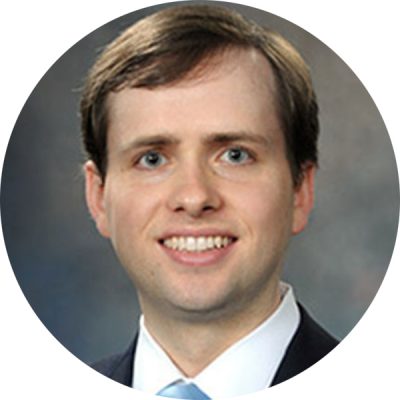
Robert Kruse
Gene therapy represents the potential to cure many monogenic diseases, including those of the liver. Adeno-associated virus (AAV) vectors have been used exclusively toward gene therapy of the liver in recent clinical trials, but AAV vectors present numerous disadvantages. Because of antibody responses toward the virus capsid, AAV vectors can’t be redosed. Furthermore, high doses of AAV can yield acute liver injury, and T-cell responses against the capsid can later eliminate gene-modified cells. Viral vectors also have enormous costs, limiting the application of gene therapy to more common diseases.
To solve these issues, I worked with endoscopist Vivek Kumbhari to improve on a method of delivering naked plasmid DNA directly into the liver through the biliary system. Plasmid DNA could enter directly into hepatocytes through pores in the cell membrane when applied at high fluid pressures. Testing was performed in a human-sized pig model with clinical equipment in order to ensure translatability into patient testing. Crucially, I found that the percentage of liver cells expressing the delivered gene exceeded 20%, comparable to the best reported data of AAV in nonhuman primates. Pigs displayed no signs of liver injury, and were able to express transgene for several weeks post-injection. We believe this approach could pave the way for nonviral gene therapy to treat a variety of liver conditions.
Questions & Answers
Why did you choose Johns Hopkins for your work?
Johns Hopkins has the number one residency program in pathology with an amazing group of talented residents and great faculty teachers. Hopkins is also the number one ranked program in numerous other specialties, and the hospital is routinely ranked in the top three in the country. The opportunity to work with the best trainees from around the country at a world-renowned hospital was very attractive. It is a pleasure to experience the most clinically complex cases, while also being at one of the top research institutions in the world.
What does receiving this award mean to you personally and professionally? Do you have any connection with the particular award you received?
A physician-scientist occupies a unique role across patient care and basic science. Having completed M.D. and Ph.D. degrees before coming to Hopkins, recognition for the Physician Scientist Award validates the training and hard work in my career so far, as I continue to grow into an independent investigator. At an institution like Johns Hopkins with so many truly talented physician-scientists, receiving this award is even more special.
What contributed to your project’s success?
The project’s success was driven by an interdisciplinary team comprising different medical specialties (pathology, medicine, endoscopy, surgery) and science backgrounds (gene therapy, stem cells). Moreover, tremendous hustle, long hours, resourcefulness and a collaborative environment at Hopkins helped to complete the project.
What thoughts do you have about Young Investigators’ Day itself, as a celebration of the roles students and fellows play in research at Johns Hopkins?
Students, trainees and fellows are the backbone of all academic scientific research. I feel a lot of camaraderie when I walk the lab hallways and animal facilities late at night and on weekends and see my fellow brethren working long hours toward achieving scientific breakthroughs to realize their dreams. It’s a huge amount of sacrifice, so I appreciate Hopkins recognizing everyone for their extraordinary efforts.
What has been your best/most memorable experience while at Johns Hopkins?
I wrote a nomination letter for an outstanding nurse who had been at Hopkins for over 35 years to be honored as a Service Star. She was utterly surprised and humbled to win the award, but all her nursing peers in the unit couldn’t have been more excited for her to finally be recognized. I got to attend the breakfast in her honor and sit at a table with the hospital president.
What are your plans over the next year or so?
Next year, I will be doing a transfusion medicine fellowship at Harvard Medical School. I will also be looking for faculty positions this coming fall in hopes of launching a physician-scientist career, running a lab while managing patient duties.
Tell us something interesting about yourself.
I love sports, and have appeared as a cheering fan on TV during College Gameday and the NCAA tournament. I’ve also had the chance to meet sports legends like Yao Ming, Roger Clemens and Tony Hawk in person. I worked as a sports reporter for my college newspaper and interviewed with ESPN for a job, but I ultimately decided to continue with my passion for science and medicine.